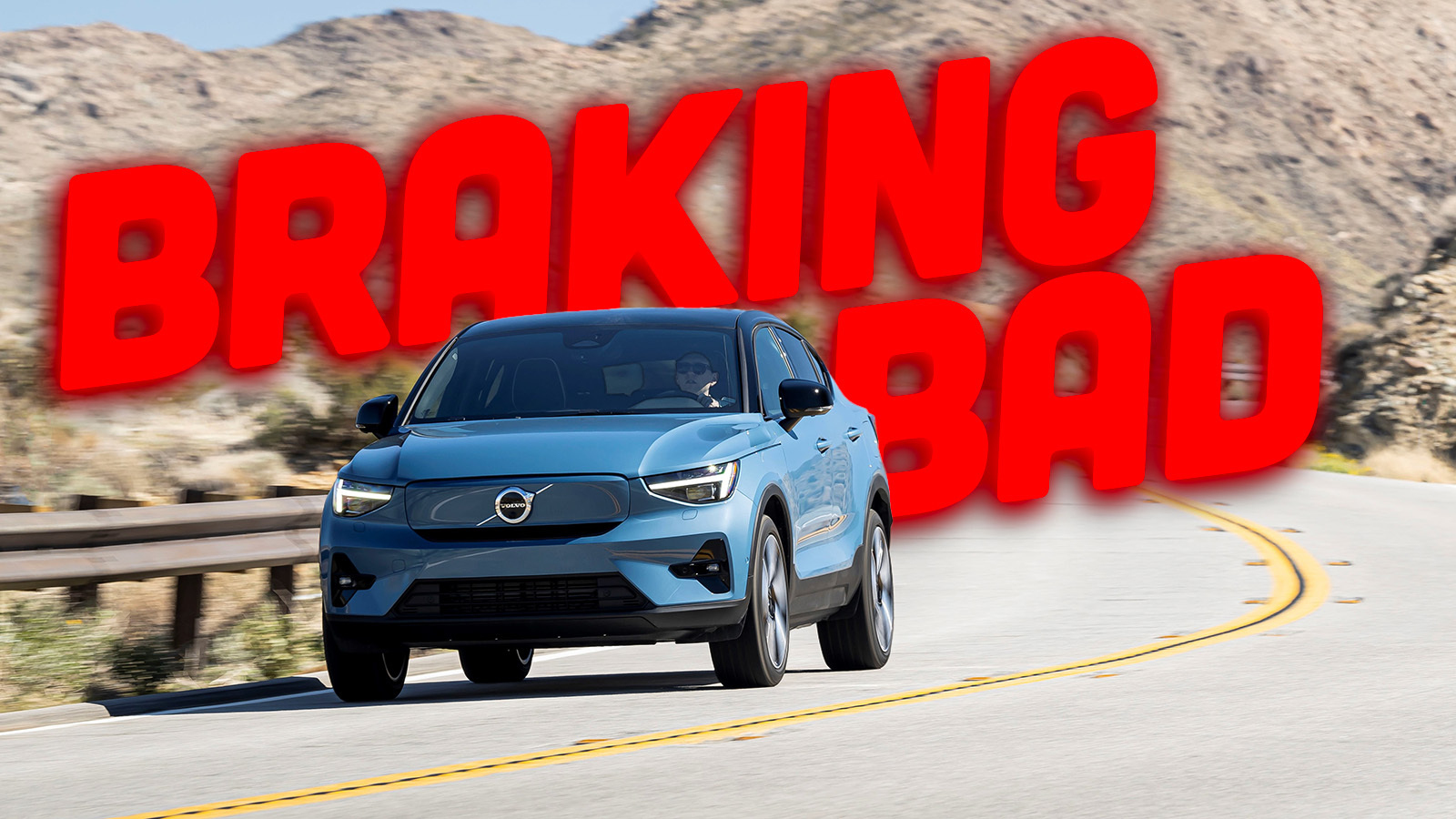Volvos' Brakes Could Fail Due to Software Glitch

Understanding the Brake Issue in Certain Volvo Models
When it comes to car safety, one of the most critical components is the braking system. While features like horsepower, style, and technology often capture attention, nothing surpasses the importance of reliable brakes. A malfunctioning brake pedal can lead to serious consequences, which is why Volvo has issued a warning to owners of select plug-in hybrid and electric vehicles.
The issue stems from a software bug affecting specific models. This defect is tied to the brake control module programming in software version 3.5.14. The problem only manifests under certain conditions, particularly when driving in specific modes on certain models.
Conditions for the Brake Failure
Affected customers may experience a temporary loss of braking functionality after coasting downhill for at least 1 minute and 40 seconds. This occurs when using “B” drive mode in plug-in hybrid electric vehicles (PHEVs) or “One Pedal Drive” mode in battery electric vehicles (BEVs). If the driver does not apply the brake pedal or, to some extent, the accelerator pedal during this time, the braking system could fail entirely.
This situation is particularly concerning because it could lead to dangerous scenarios, such as losing control of the vehicle while descending hills. Although no incidents have been reported yet, the potential risk is significant enough for Volvo to take action.
How the Defect Was Discovered
The defect was identified through real-world testing and even documented in a dashcam video by the National Highway Traffic Safety Administration (NHTSA). This video shows the brake failure mode occurring, highlighting the urgency of the recall. While running into an embankment is preferable to falling off a cliff, the incident underscores the need for immediate action.
Implications of Software-Related Brakes
Traditionally, brakes were mechanical systems that required physical maintenance. However, with the rise of electric and hybrid vehicles, software plays an increasingly important role in vehicle performance. This shift introduces new challenges, as a simple software update can impact critical functions like braking. While updates are generally safe, the possibility of errors raises concerns about reliability.
Affected Models and Numbers
The recall affects a wide range of Volvo models, including:
- 2020 to 2026 XC90 plug-in hybrid
- 2022 to 2026 XC60 plug-in hybrid
- 2023 C40
- 2023 to 2024 XC40 Recharge
- 2023 to 2025 S60 plug-in hybrid
- 2024 to 2025 V60 plug-in hybrid
- 2025 EC40
In total, approximately 11,469 vehicles in America are affected. While most have already received the necessary software update since the recall was announced in June, around 1,000 vehicles remain unaddressed.
Steps to Address the Recall
Volvo recommends that affected drivers stop using their vehicles until the software update is installed. The fix involves downloading the latest over-the-air update. If a vehicle must be moved, owners should avoid using “B” mode on PHEVs or “One Pedal Drive” on BEVs.
Given that more than a month has passed since the recall was announced, most of the remaining 1,000 or so vehicles should have the update available through their notification system. Owners of affected models are encouraged to check for updates promptly.
Final Thoughts
This recall highlights the growing complexity of modern vehicles, where software plays a crucial role in safety. As automotive technology continues to evolve, staying informed about recalls and updates is essential for all drivers. One simple download could make a significant difference in ensuring road safety.